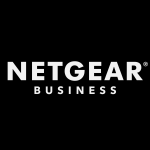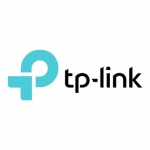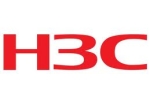What is most valuable?
The most valuable feature is that you do not require a spanning tree. With some of the other vendors, some of the other competitors, you require a spanning tree which cause a lot of looping issues in your data center or in your network. The other thing is, the HP 5400 switches comes with a lifetime warranty, so you don't have to invest anything onto a contract side, which is very good thing about it. The 5400 switches, you can use as a whole or access layer in your network and work out great.
How has it helped my organization?
The benefits are it's been running robust, the hardware is running robust, no issues at all. It's lifetime warranty again. From the hardware standpoint, configure standpoint, it's all working fine.
What needs improvement?
I don't know about specifics, but so far all the switches that we deployed, it meets all of our needs. For what we require, it has all of features. It also varies on the switch by switch version, and it depends on what kind of switches you have. For me, right now it's meeting all my needs, so I don't have any complaints about it.
For how long have I used the solution?
We deployed HP for almost five years and it's been rock solid. All the switches, no single-out days with the switches. The switches hardware have a long life, and it has been working great for us.
What do I think about the stability of the solution?
Stability is pretty good, as I say that we deployed HP, it's been about four years and we haven't had a single out day in my data center. I can't ask anything more than that.
What do I think about the scalability of the solution?
All the hardware that we have, our portfolio at HP, it's pretty scalable to the latest and greatest technology. You can have a 40 GIG QSFP Uplink for the top of Rex switches, or even one for your core switches, that's over 40 GIG, 100 GIG Uplink. That is what everybody is going towards now, with all the data centers. It's up to the mark.
How are customer service and technical support?
To me, the technical support is not that good. Trust me, we don't use the technical support anymore from HP because we tried to use them and we didn't get much of a response from them. I know everybody's experience is different, but we try to do it by ourselves. We try to figure out by ourselves if any kind of software issue or any kind of hardware issue. The support, we didn't get much response from HP about the software support, configuration support, we just tried by ourselves, but hardware, it's pretty good.
Which solution did I use previously and why did I switch?
With the old technology we were paying more money with the context. Obviously, we were having a lot of issues with the Data Center, where Data Center used to go down with the old legacy technology. We decided to move forward with RFP. We evaluated a few vendors in the market and after evaluation we decided to go with HP and it's been working out great for us.
How was the initial setup?
When we started deploying, it was H3C and they have a different division, Comware, and HP are 5400 Series, they have a different set up command lines. Now, they are making everything together on the Comware division. When we deployed, it depends on the switches. If you buy Comware switches, they have a different command set compared to HP or H3C switches. It was kind of hard for us to learn the command line initially, but now we are all comfortable with it and it's working fine. Since they are all HP now, all the switches, they only have a one command line in the Comware 7, if you have that, it's pretty easy to deploy initially.
Which other solutions did I evaluate?
We tried Cisco, we tried Dell. Again, it's more robust and the most important factor was a price. I just look at the technology and see if it meets your needs for your data center and not in HP, looks like they did, they did meet our needs, what we needed for our data center, for our campus, branch offices and it's been working out great.
What other advice do I have?
Hardware can last for a while. You have all of options to upgrade the switches, a lot of options to support the connectivities, like 1 GB, 10 GB, 40 GBs, different varieties of the switches. You can choose from.
I just want to say that best thing about HP is they don't have a technology called a Spanning Tree Protocol, which can cause a lot of issues on your network, and HP kind of get rid of that. When you do a HP IRF, you kind of don't need that Spanning Tree, which is the most important part about HP.
Other than that, again it's a hardware stability. Hardware stability, they have IRF for the switches to virtualize your switches. The easy set of command line, with the new Comware 7.
Disclosure: My company does not have a business relationship with this vendor other than being a customer.















Unfortunately the 1910's were numerous and were redeployed "not my
choice" the product familiarity in the UK is an issue as despite the
cost they are not a popular product, I have come across all kinds of kit
entrasys, extreme, avaya, huawei, zte etc but finding people to support
these products is like finding unicorns.
The STP side of things isnt a huge shock as I have had to dig deep into
that kind of thing for CCIE switching knowledge and it doesnt worry me!
Just inconvenient when you know theres something else that works
straight out of the can.
Management MIBs, alarms and all the usual are quite good now! The
strange thing being you can still see traces of 3COM in certain aspects,
the one other thing I found a little odd was the stacking feature which
when compared to cisco is not what I would class as best of breed.
I thank myself lucky that the market for enterprise class equipment is
pretty much cisco's realm and that I don't deal with these variations on
a theme that often .